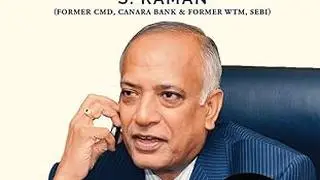For those who have read any of Henry Kissinger’s previous sixteen books, reading his latest book, Leadership: Six Studies in World Strategy will be a novel experience – this is his first book dealing with personalities - six leaders from the last century who through their leadership of their respective countries at crucial points in history were able to impact on world strategy.
Kissinger’s choice for the six case studies – Konrad Adenauer of Germany, Charles de Gaulle of France, , Richard Nixon of US, Anwar Sadat of Egypt, Lee Kuan Yew of Singapore and Margret Thatcher of UK – quite apart from his personal familiarity or professional acquittance during his tenure as a Harvard Professor or as National Security Adviser or Secretary of State to Nixon and subsequently to Gerald Ford, was that they transformed their societies and contributed to the emergence of a new world order in what Kissinger calls the dramatic half century of the Second World war and its aftermath.
What he does not mention but is implicit in his choice, is in contrast to those not included – like Mao Tse Tung, Indira Gandhi, or even Brezhnev; the six chosen leaders were in varying measure in close alignment with America or its interests globally. This is a book about allies, friends and admirers of American power in the 20th century.
Inimitable prose
Each of the six case studies has a similar structure – biographical narration, exceptional circumstances in which leadership positions were secured, the formidable challenges overcome and the long-term impact of decisions taken, all in the tight and inimitable prose of Kissinger that has remained unchanged for the last six decades.
In Kissinger’s view, Adenauer – through a ‘strategy of humility, shepherded Germany past the lowest point of its history’, after its defeat in the Second World War. De Gaulle – through a ‘strategy of will’ guided France’s historical transition from a ‘defeated and divided empire to a stable prosperous nation state’ and ‘restored France to a significant role in international relations.’ Sadat, through a ‘strategy of transcendence’, endeavoured to restore Egypt’s confidence after its defeat in the 1967 war with Israel. Lee Kuan Ywe, through a ‘strategy of excellence’ ensured the emergence of Singapore as a secure, well- administered and prosperous city state with a shared national identity providing unity amid cultural diversity. Thatcher through a ‘strategy of conviction’ uplifted a UK permeated by an air of weary resignation over loss of its global reach and decline of its international position. Nixon, with whom Kissinger’s association was most intimate, is praised, with only a passing acknowledgement of his failings, for his ‘strategy of equilibrium’, through his opening with China, arms control with the Soviet Union and the Peace Process in the Middle East. There is, of course, no mention of the disastrous policy shift towards Pakistan in the run-up to the 1971 India-Pak war that led to the liberation of Bangladesh.
While each of the six leaders has a separate chapter, Kissinger’s concluding chapter is a masterly discourse on the evolution of leadership from ‘aristocracy to meritocracy’- all these leaders were not born into privilege. Kissinger ponders over the implications for leadership in the present context when ‘visual culture has displaced deep literacy’ – the loss of ‘erudition, learnedness, serious and independent thinking in an age dominated by the image.’
Good character
While noting certain common traits amongst the six – ‘tellers of hard truths, powerful vision and a penetrating sense of reality, boldness and decisive action, solitude, and not shying away from divisiveness in case consensus was not possible in the pursuit of national goals’, Kissinger underlines the ‘sheer centrality of character’. “Good character does not assure worldly success or triumph in statecraft, but it does provide firm grounding in victory and consolation in failure.”
For current and future leaders- Kissinger’s advice begins with a warning: ‘the vastness of our future as yet defies comprehension’. His conclusion: “Great leadership results from the collision of the intangible and the malleable, from that which is given and that which is exerted. Scope remains for individual effort - to deepen historical understanding, hone strategy and improve character.”
At age 99, Henry Kissinger has an undiminished ability to pack an exceptional punch on the elements of world strategy like no other. He still defines his class. Even while wading through the complexities of the last century, while painting for his readers six eminently readable portraits of leaders, Kissinger concludes that leadership will be judged by criteria that remains unchanged - whether they are able to ‘transcend circumstance by vision and dedication’ and ‘to pre-empt challenges before they manifest themselves as crises’.
A must read for those interested in or impacted by the craft of leadership in today’s troubled world.
(The reviewer is former Ambassador of India to Russia)









Comments
Comments have to be in English, and in full sentences. They cannot be abusive or personal. Please abide by our community guidelines for posting your comments.
We have migrated to a new commenting platform. If you are already a registered user of TheHindu Businessline and logged in, you may continue to engage with our articles. If you do not have an account please register and login to post comments. Users can access their older comments by logging into their accounts on Vuukle.